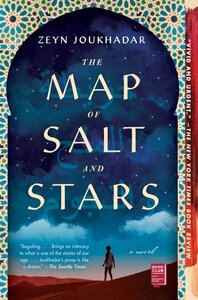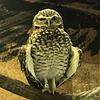Take a photo of a barcode or cover
adventurous
emotional
informative
sad
tense
medium-paced
Plot or Character Driven:
A mix
Strong character development:
Yes
Loveable characters:
Yes
Diverse cast of characters:
Yes
Flaws of characters a main focus:
No
Great concept and idea, but sadly the execution wasn't for me. It didn't keep my attention fixed for long at a time.
I will read anything Zeyn Joukhadar writes. There is so much to love about this book. The messy relationships between sisters is portrayed so well. Seeing conflict through the eyes of a child is really interesting, because so much of her reactions seem normal for any adult, especially the intense wariness of any stranger (which is sometimes necessary and is sometimes proven wrong).
I read this book around the time millions of Ukranians have become refugees after Russia's invasion, and there are a lot of comparisons to how the media and world at large is reacting to (mostly) white refugees from Europe compared to the millions of Syrian refugees who needed (and still need) aid.
I read this book around the time millions of Ukranians have become refugees after Russia's invasion, and there are a lot of comparisons to how the media and world at large is reacting to (mostly) white refugees from Europe compared to the millions of Syrian refugees who needed (and still need) aid.
I had very high expectations for this book. They didn't quite come true, but I still enjoyed it. I had some issues with the writing. It wasn't bad, not at all, but there were so many metaphores that it was distracting at times and kept me from really getting into the story. In the first half of the book I also didn't feel a need to get back to it, but at some point that changed and suddenly I found it much harder to put down. Also, and I loved learning about Al-Idrisi, who actually was a real map maker back in the 1100s.
I read this one for my Words Between Worlds book club and despite my brain not really getting into the story (for personal reasons, I promise you), I felt like I went on a grand and terrifying adventure with Nour and Rawiya.
I absolutely loved Rawiya's story. As almost a fairytale, it's something I would read more about. With mythical beasts, fighting, magical items, and a plan to map all of the Middle East, this is the kind of fantasy that gets me super excited. However, when paired with Nour's story, it feels like more of a fantasy than anything happening in reality.
I really felt like Rawiya's story was like a fairy tale Nour's been told hundreds of times. She's memorized the story. She knows exactly where Rawiya and the mapmaker travels. In that sense, Rawiya is Nour's personal Disney princess. She goes on this grand adventure with mythical beasts, magic, and romance. It's definitely the kind of story you would want a young girl to listen to and admire. It's the kind of story that maps out the choices and person you want to become. Rawiya is a hero in her own right and I think Nour knows that too.
I also think that Rawiya's story was used to give Nour an idea of what Syria and the Middle East is like. She's constantly looking for the roc's eye. She's constantly referring back to Rawiya and how she's not her. She even tries to sling a rock at someone attacking her sister like Rawiya does in the story. Nour is this Syrian American girl born in New York and knows little about her ancestral home. She doesn't know as much Arabic as her sisters and she almost seems lost in this fantasy of Rawiya and the mapmaker. However, I think Nour's fantasy of this beautiful landscape was changed after their home in Syria was destroyed by a bombing.
Perhaps the use of Rawiya's story was there to give something Nour to think of. She had been following the same route Rawiya took from Hom to Ceuta and meeting her own challenges which were more frightening and less fantastical than a mythical bird. Things like smuggling into another country on a refrigerated truck, surviving two ferry bombings, surviving the bombing of her Syrian home, and being split up from her entire family.
I think the only thing I wasn't a fan of was how everything kind of came together at the end. Nour had already lost a few people along her journey and them all finding each other in the same place at the same time felt a little cheesy and out of character. I mean, we were already seeing people die, families pulled apart by the fighting in the Middle East, so I wouldn't have been surprised by more casualties. It just seemed a little too neatly packaged at the end.
The last thing I want to bring up is Nour's father; the person who told her the story of Rawiya. While he wasn't a live character in the story, his presence seemed very obvious throughout. It was like Nour needed the faint presence of her father to help her survive. It was his story, his brother, and his country that transported her from New York to Syria, and it makes sense for him to be such a vital component to who Nour becomes.
I absolutely loved Rawiya's story. As almost a fairytale, it's something I would read more about. With mythical beasts, fighting, magical items, and a plan to map all of the Middle East, this is the kind of fantasy that gets me super excited. However, when paired with Nour's story, it feels like more of a fantasy than anything happening in reality.
I really felt like Rawiya's story was like a fairy tale Nour's been told hundreds of times. She's memorized the story. She knows exactly where Rawiya and the mapmaker travels. In that sense, Rawiya is Nour's personal Disney princess. She goes on this grand adventure with mythical beasts, magic, and romance. It's definitely the kind of story you would want a young girl to listen to and admire. It's the kind of story that maps out the choices and person you want to become. Rawiya is a hero in her own right and I think Nour knows that too.
I also think that Rawiya's story was used to give Nour an idea of what Syria and the Middle East is like. She's constantly looking for the roc's eye. She's constantly referring back to Rawiya and how she's not her. She even tries to sling a rock at someone attacking her sister like Rawiya does in the story. Nour is this Syrian American girl born in New York and knows little about her ancestral home. She doesn't know as much Arabic as her sisters and she almost seems lost in this fantasy of Rawiya and the mapmaker. However, I think Nour's fantasy of this beautiful landscape was changed after their home in Syria was destroyed by a bombing.
Perhaps the use of Rawiya's story was there to give something Nour to think of. She had been following the same route Rawiya took from Hom to Ceuta and meeting her own challenges which were more frightening and less fantastical than a mythical bird. Things like smuggling into another country on a refrigerated truck, surviving two ferry bombings, surviving the bombing of her Syrian home, and being split up from her entire family.
I think the only thing I wasn't a fan of was how everything kind of came together at the end. Nour had already lost a few people along her journey and them all finding each other in the same place at the same time felt a little cheesy and out of character. I mean, we were already seeing people die, families pulled apart by the fighting in the Middle East, so I wouldn't have been surprised by more casualties. It just seemed a little too neatly packaged at the end.
The last thing I want to bring up is Nour's father; the person who told her the story of Rawiya. While he wasn't a live character in the story, his presence seemed very obvious throughout. It was like Nour needed the faint presence of her father to help her survive. It was his story, his brother, and his country that transported her from New York to Syria, and it makes sense for him to be such a vital component to who Nour becomes.
A beautiful, sad and uplifting story that contains a reminder of how much has been lost in Syria's war.
“But even if God does hear our questions,” I say, “what if we can’t understand the answers?”
“Sure, some questions have answers we don’t understand,” Abu Sayeed says. “But you can understand more than you think, if you are willing to wait for the knowing.”
“What do you mean, wait for it?” I say. “You mean like with math homework, how some problems make sense after you think about them for a few days?”
Abu Sayeed says, “Sometimes it takes years to understand what Allah wants us to know.”
I try to raise an eyebrow, but both go up. “And he just expects us to wait?”
Abu Sayeed smiles. “Little cloud,” he says, “that’s what faith is.”
I wanted to like this book. I really tried. But unfortunately it just fell flat for me.
The premise seemed promising, and objectively the writing is good. But I could never get into the storyline set into the past. I didn’t have much emotional investment in any of the characters, past or present time line, because they were very undeveloped to me. Also most of the dialogue is just characters saying Profound and Deep Things back and forth between each other. Which, to its credit, does offer some good insight, but it just felt artificial. I’m disappointed in this read and wouldn’t recommend it, but maybe its style just wasn’t for me.
“Sure, some questions have answers we don’t understand,” Abu Sayeed says. “But you can understand more than you think, if you are willing to wait for the knowing.”
“What do you mean, wait for it?” I say. “You mean like with math homework, how some problems make sense after you think about them for a few days?”
Abu Sayeed says, “Sometimes it takes years to understand what Allah wants us to know.”
I try to raise an eyebrow, but both go up. “And he just expects us to wait?”
Abu Sayeed smiles. “Little cloud,” he says, “that’s what faith is.”
I wanted to like this book. I really tried. But unfortunately it just fell flat for me.
The premise seemed promising, and objectively the writing is good. But I could never get into the storyline set into the past. I didn’t have much emotional investment in any of the characters, past or present time line, because they were very undeveloped to me. Also most of the dialogue is just characters saying Profound and Deep Things back and forth between each other. Which, to its credit, does offer some good insight, but it just felt artificial. I’m disappointed in this read and wouldn’t recommend it, but maybe its style just wasn’t for me.
adventurous
challenging
dark
emotional
hopeful
medium-paced
Plot or Character Driven:
A mix
Strong character development:
Yes
Loveable characters:
Yes
Diverse cast of characters:
Yes
Flaws of characters a main focus:
No
This was such a good book! The author artfully told a remarkable and difficult story by alternating it with a parallel folktale. Very well done. **After more reflection and book group discussion I’ve decided this is a 5 star book. Beautifully written.
adventurous
dark
emotional
reflective
sad
medium-paced
Plot or Character Driven:
A mix
Strong character development:
Yes
Loveable characters:
Yes
Diverse cast of characters:
Yes
Flaws of characters a main focus:
Complicated



